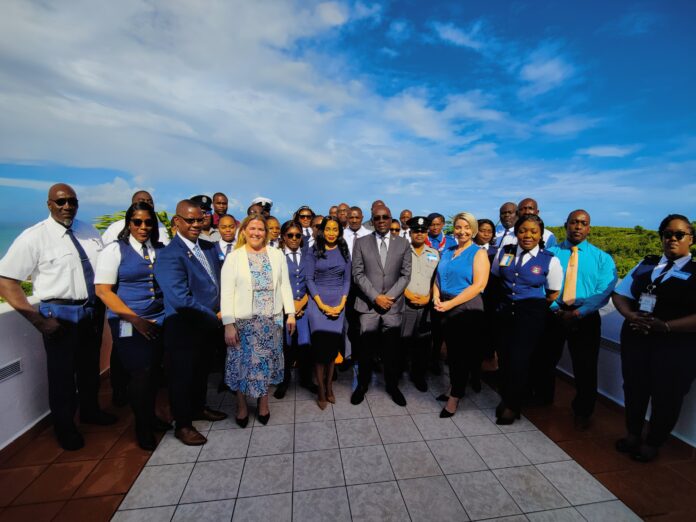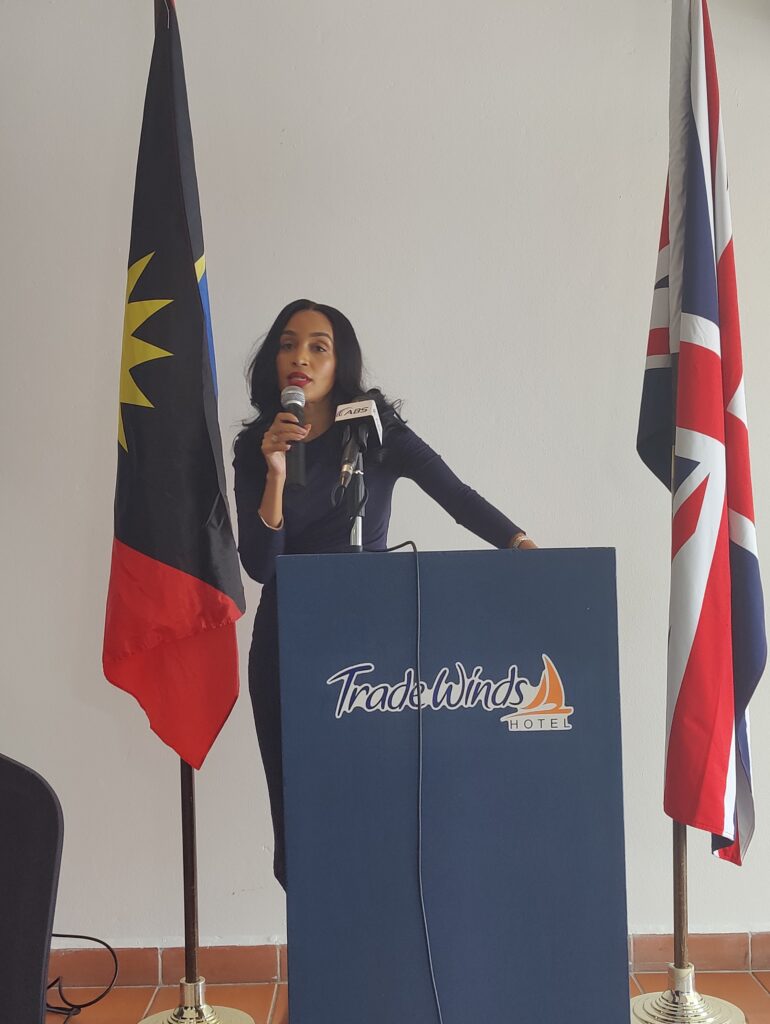

By Orville Williams
A partnership between the UK government and the Immigration Department is expected to bolster the department’s capacity to assess risks and detect incidents of fraud, according to Chief Immigration Officer, Katrina Yearwood.
It was announced on Monday that a total of 25 officers from the Immigration Department and the police force – along with their colleagues from Montserrat – are participating in the International Immigration Border Security Training, being hosted by the British High Commission.
The four-day training programme, scheduled to run from Monday until Thursday, is expected to cover the main immigration risks and threats within the Eastern Caribbean, and offer tools and guidance so participants can adequately address those risks.
Addressing the opening ceremony on Monday, Yearwood spoke on the specific areas that will be targeted, based on observations made here in Antigua.
“This training segment has been specifically designed to assist us with [the] detection of fraudulent documentation, which we have seen; it is [also] here to assist us with detecting imposters, [with] interview techniques…[and] my favorite part of this training, behavior assessment,” Yearwood said.
The training programme, according to the British High Commission, will be led by two UK government trainers from the Home Office International Operations (HOIO).
Yearwood revealed that she had several meetings with the trainers prior to the programme’s commencement, about the priority needs for the Immigration Department – continuous training in the aforementioned areas.
And as far as behavior assessment is concerned, the Chief Immigration Officer explained that it requires particular focus, based on the nuances in the threats the department regularly faces.
“Often times, there are things that we – as immigration officers and law enforcement officers – sometimes overlook or miss.
“Yes, we can ask the ‘who, what, when, where’ questions when trying to ascertain why a person wants to have an extension or get on for residency or citizenship, [but] there are some idiosyncrasies that one would have to be aware of when they’re answering certain questions.
“For example, if you’re asking somebody something and you’re seeing that they’re looking a bit flustered, or the eyebrow is arching, or they’re looking up in the air to find an answer.
“It’s those techniques that the British High Commission – in the form of these facilitators – will be unearthing for the betterment of not only Antigua, but the Caribbean region and the globe as a whole.”
Yearwood spoke too on the importance of including not only personnel from her department, but others, in a holistic approach to border security.
“It would be remiss of me to have a training and it was just for my immigration officers. Although [they] are the priority for me…I’ve extended an invitation to police officers [and] I’ve extended an invitation overseas to Chief Foster [from Montserrat].
“The reason for that is because ‘each one teach one’. There is strength in numbers, so if Foster’s staff complement is aware of these trends, can take part and take away what it is we’re going to be taught in the training segment, it helps us, it helps the global picture”, she said.
Also speaking at the opening ceremony were Resident British Commissioner, Lindsy Thompson, and Minister of Foreign Affairs, International Trade and Immigration, EP Chet Greene.
Thompson commended the Immigration Department for its efforts to ensure the training programme went ahead, and assured the participants that the knowledge and skills they acquire will help ward off cross-border criminal activity.
Greene, meanwhile, joined Yearwood in thanking the UK government for its continued support and urged the participants to learn all they can and prepare to apply that knowledge in their daily operations.
